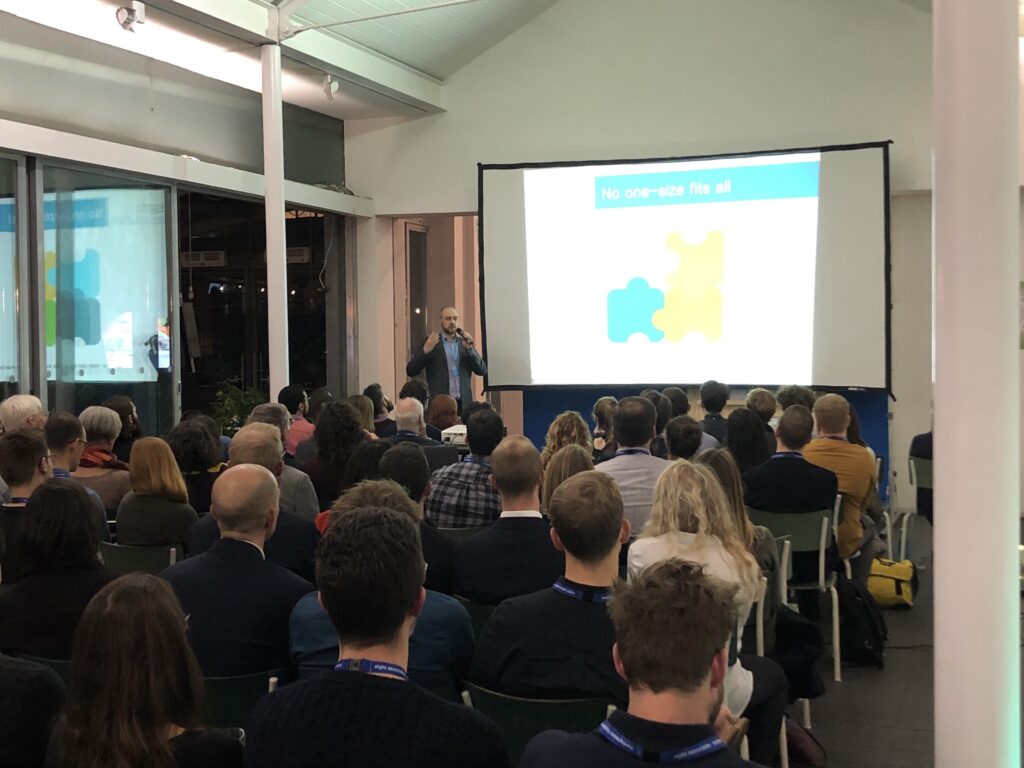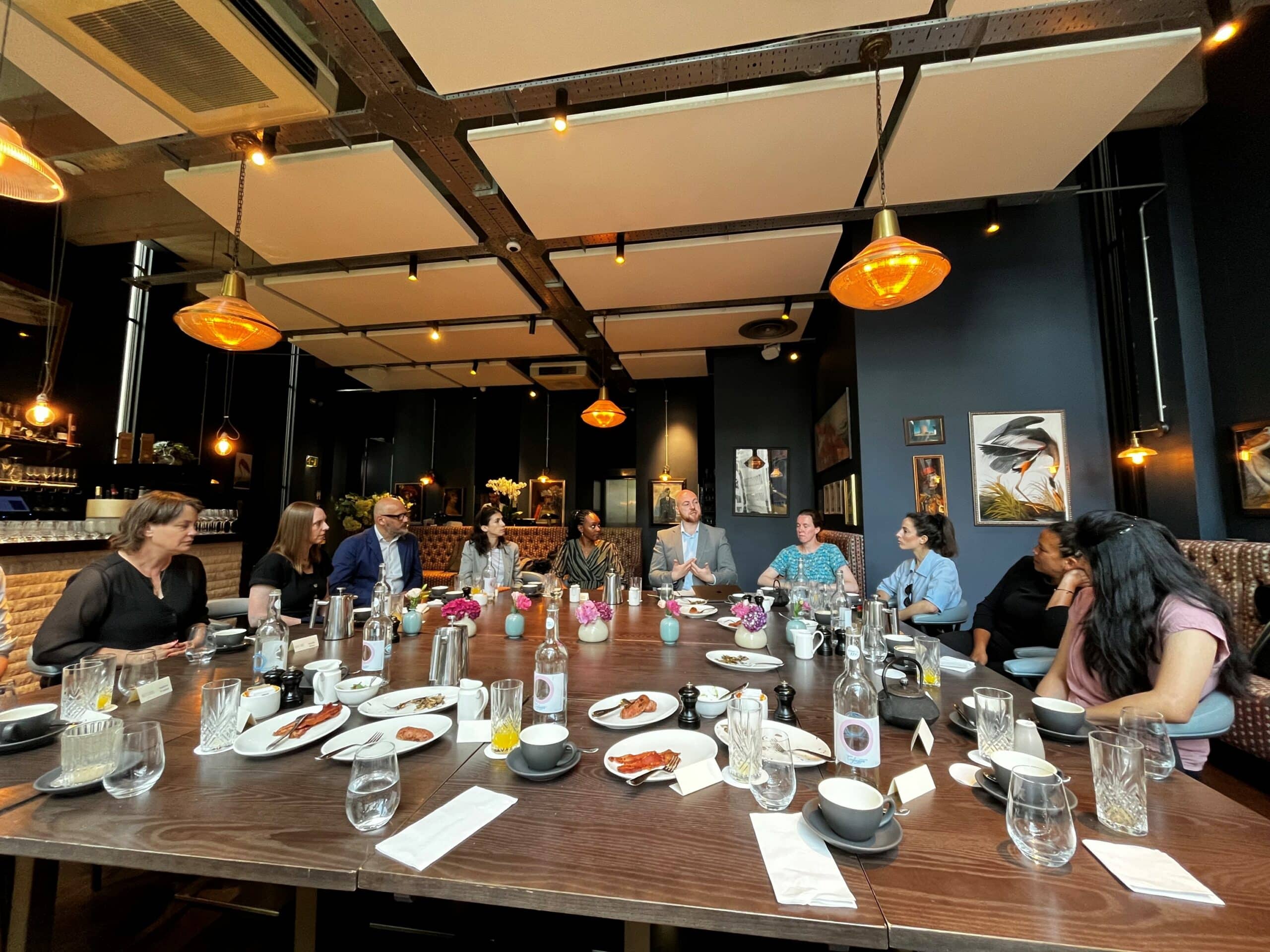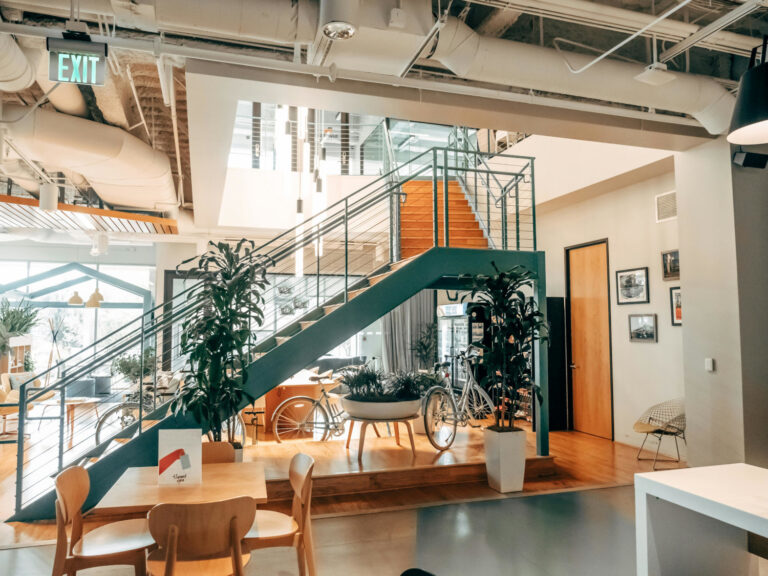Recently we hosted a breakfast roundtable with a selection of leading architects on the topic of sustainability. After releasing an article on how Architects Declare Has Become a Damp Squib, it was important to get together and understand the successes and challenges of the pledge made over 4 years ago. Part of our critique had been based on the experiences we’ve had on a variety of projects where sustainability had been significantly underrepresented, despite the lofty commitments made by 1000s of signatories all those years ago. We hosted a large event back in 2020 when it was first released, however we have since seen the enthusiasm wain and so we wanted to understand why with this roundtable.
The conversation started with the majority of participants admitting that they had to refresh themselves on what was included in Architects Declare (AD) before attending the breakfast. This by no means meant that those in the room hadn’t been pushing for more sustainable practices in recent years, but that the specifics of the pledge were a bit hazy. So, we swiftly moved on to sharing success stories and how AD had generally created a behavioral shift amongst several practices. Participants pointed to how the shift has been quite substantial as the conversation around sustainability wouldn’t have even been on the table 4 or 5 years ago, whereas now it’s at least being factored in. Naturally, the conversation then steered towards how sustainable the projects have been and the barometer for what is sufficient.
With the range of architects from different backgrounds, we discussed limitations and barriers for a variety of development types including residential and commercial. However, whatever the scenario seemed to be the common thread was that what the client says, goes. In each case, the clients had a mixed response to sustainability with some valuing it higher than others according to participants. This created a shared challenge amongst everyone in the room as they all felt responsible for persuading and influencing the client into increasing the perceived value to deliver a greater environmental impact. As the experts, they felt they could advise on more sustainable materials and design but a lot of the time the decision came down to cost. And so, when discussing value, there were mixed tactics and experiences on how best to guide clients.
One participant highlighted that if the clients are only interested in PR and Marketing the environmental benefits of their project, then architects need to use that to demonstrate value. By understanding what it is they want to communicate to the market and for what purpose, architects can better pitch the story of why introducing more sustainable practices can help with this. For other clients who are particularly looking to demonstrate the ROI of sustainability, it was important for architects to understand what the value metrics were and how to help clients maximise them. Whether through enhancing energy efficiency, healthier spaces for premium letting or net zero carbon design for more investment interest, there were opportunities to talk their language rather than just highlighting the positive environmental impact.
A key barrier to success according to participants is that there is not enough cohesion and collaboration in the market. Everyone is working and competing in silos. The idea of sharing knowledge and successes where key metrics and value can be clearly demonstrated was an appealing principle for everyone in the room. Knowing that AD doesn’t exist to police the industry meant that they all felt individually responsible to push the boundaries. However, due to this currently being delivered sporadically and inconsistently there was a great desire to work closer together to set a better standard across the board.
Ultimately, this roundtable highlighted how things are moving forward. The architects knew they could only do so much and pointed to the need for greater regulation, better government policy and more industry-wide standards. However, the hunger to take on this challenge and keep pushing for more sustainability in the market was especially apparent. Getting together in this format proved to be an important step towards greater collaboration, and although it was only a small gathering it was hugely encouraging for all those who took part.
2023 Architects Declare Breakfast

2020 Architects Declare Seminar






